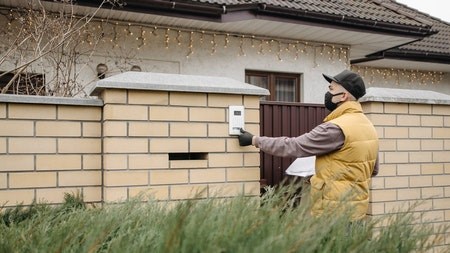Q: Is the end of the year a good time to review [insurance policies][1] and do necessary maintenance to ensure all insured items are in working order?
It is not only necessary at this time of the year, but a review of the homeowners' insurance policy should be done every six months to ensure that a home is adequately covered and that the owner is aware of what is and isn't covered by the policy. Sometimes policies can be onerous to understand. Therefore policyholders must familiarise themselves with the contents of the homeowner’s comprehensive insurance terms and conditions, which are contained in the policy wording and policy schedule.
What is not often understood is that it is the homeowner's responsibility to undertake general routine maintenance and repairs on their property. The policy will not cover loss or damage to your property due to lack of maintenance, and a claim will be rejected if proven so. However, undertaking maintenance and repairs assists in preventing loss or damage to property and aids in maintaining the property value.
If a homeowner renovates or undertakes extensions to the home (for example: transforming a tiled roof to a thatched roof or adding a garage, outbuilding, or swimming pool), it is the homeowner's responsibility to advise the insurer immediately as this could change not only the risk profile of the property but also increase the replacement value and therefore the sum insured, which will have an impact on the premium. Not notifying the insurer of such changes may have an effect at the claim stage.
Q: How has the increase in the interest rate impacted on homeowner’s insurance?
Absa does not apply premium increases simply because the interest rate has changed unless that should happen at the same time as the policy anniversary when premiums are reviewed. Homeowners will be provided notice in writing of the changes applicable to the policy or premium. It is important to note that the cost of building supplies and prices of materials such as steel etc., do impact the cost of claims and the premium at policy renewal. The insured sum will be increased to align with such inflationary increases and affect the property's full replacement value and the sum insured.
Q: What are the most common claims during December?
Traditionally, the summer season brings heavy rainfall and fierce thunderstorms, including hail. These pose the biggest threat to a property and thus increase claims from damage caused by such weather conditions. In addition, geyser failures and burst water pipes are common claims. Although these are common throughout the year, if the property is not occupied, any damage caused by a burst geyser or pipe may be exacerbated. This is why Absa constantly stresses the importance of maintenance, specifically of roofs and gutters, and further ensures a geyser drip tray placement.
Q: Renting out the home (or having the home house-sat) in this period and implications on the insurance policy?
There is no implication from a homeowner’s insurance perspective other than what is usually applicable. All advice given applies equally whether there are legal tenants renting the property or if the policyholder has a house-sitter for a short period of time. There is no stipulation in Absa's policies relative to these scenarios other than the fact that Absa covers properties that are for residential use only, either occupied by the owner or by legal tenants. There is, however, a clause about vacancy and properties that are vacant in excess of 60 days, which introduce limitations in cover, and these are contained within the policy terms and conditions. Absa consultants are always available to explain these terms in simple language, should this be required.
Q: What should homeowners be doing to maintain the validity of their homeowner’s insurance policy during the holiday season?
It is important for customers to take certain precautions during the holiday season, whether they are staying home or will be away, and more so if the property will be unattended. These precautions include:
- Switching off geysers when they are not required on the mainboard will reduce electricity consumption and will also potentially prevent and alleviate any extensive damage to property should there be any problems with geysers.
- Hotplates and ovens should be switched off at the wall. If they are unknowingly left on, without the mains switched off, a fire could be the result.
- Ensuring all taps are properly closed (also when there are interruptions to the water supply) helps to prevent flooding.
- Switching off major appliances at the wall sockets and removing plugs from wall plug points prevents power surge damage should the main electricity supply be interrupted.
- Locking and securing the property is a theft deterrent.
- Roofs require some attendance, such as ensuring debris is cleaned from roofs and gutters and checking that all roof tiles are in place, not loose, or out of position. As temperatures rise and fall, metal roofs expand and contract, loosening screws and washers, which may need to be replaced at least twice a year. Joints and gaps between roof sheets may also need to be resealed for protection against rust. Tiled and slate roofs are prone to cracking and slipping, and these should be repaired to avoid roof leaks and damage to a home's interior. Ensure ridge tiles are secure and any cracked or missing ridge tiles are replaced and waterproofed.
A thatched roof needs to be brushed or combed several times during its lifespan to prolong the life of the thatch. With a thatched roof, it is important to install a lightning conductor, fire retardant and water-drenching system to minimise any spread of fire. The policy and underwriting guidelines are very specific about thatch roofs, so policyholders must make it a point to read the terms and conditions. Overall, regardless of the roof type, Absa recommends the employment of qualified roof specialists for the maintenance of a roof.
A homeowners insurance policy is tailored to protect your possessions and give you peace of mind while you are home and away. As the year ends, reward yourself with peace of mind by securing cover.





